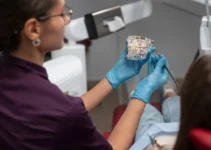The connection between our dietary choices and dental health is profound and often underestimated. Consuming a balanced diet rich in vitamins, minerals, and antioxidants plays a critical role in preventing the onset of dental diseases. Foods high in sugars and acids, for example, can promote the growth of harmful bacteria that lead to tooth decay and gum disease. On the other side, crunchy fruits and vegetables can help clean teeth naturally while stimulating saliva production, which protects against cavities. Understanding these dynamics can help you maintain not only good oral hygiene but also contribute to the overall health of your teeth and gums.
The Role of Sugary Foods and Beverages
The consumption of sugary foods and beverages has become a significant concern in dental health. Numerous studies have shown a direct correlation between high sugar intake and various dental problems. Understanding the impact of these dietary choices is crucial for maintaining optimal oral health. Many people indulge in sugary snacks and drinks without realizing the long-term consequences on their teeth and gums. When sugar is consumed, it interacts with the bacteria in the mouth to produce acids. These acids attack the enamel, which is the hard, outer layer of the teeth, leading to decay. Frequent consumption of sugar can exacerbate this effect, causing extensive damage over time. It is important to note that the impact of sugary foods and beverages is not only limited to tooth decay, but also extends to other dental issues, such as gum disease.

Both adults and children are at risk, making it essential to educate and promote healthy dietary habits from an early age. Dental professionals play a key role in guiding their patients towards healthier choices and preventative measures to combat the adverse effects of sugar on oral health.
Impact on Tooth Decay
Tooth decay, also known as dental caries, is one of the most common dental problems worldwide. The primary cause of tooth decay is the frequent consumption of sugary foods and beverages. Sugars such as sucrose, fructose, and glucose are metabolized by oral bacteria, leading to the production of acidic by-products that erode tooth enamel.
When enamel is weakened, it becomes susceptible to cavities. Over time, these cavities can penetrate deeper layers of the tooth, causing pain, infection, and even tooth loss if left untreated. Preventing tooth decay involves minimizing sugar intake and maintaining proper oral hygiene practices. Brushing twice a day, flossing, and regular dental check-ups are essential steps in combating decay.
It is also beneficial to incorporate dental sealants and fluoride treatments. Sealants provide a physical barrier on the chewing surfaces of teeth, reducing the risk of decay, while fluoride helps to remineralize and strengthen the enamel, making it more resistant to acid attacks.
Correlation with Gum Disease
In addition to tooth decay, there is a strong correlation between the consumption of sugary foods and beverages and the development of gum disease. Gum disease, or periodontal disease, is an inflammatory condition affecting the tissues surrounding the teeth. The bacteria that thrive on sugar not only cause tooth decay but also contribute to the buildup of plaque on the gums.
Plaque accumulation leads to gingivitis, which is the initial stage of gum disease characterized by red, swollen, and bleeding gums. If gingivitis is not treated, it can progress to periodontitis, a more severe form of gum disease that can result in gum recession, bone loss, and eventually tooth loss. Consuming sugary foods and drinks frequently can exacerbate these conditions.
Effective management of gum disease involves reducing sugar intake, practicing good oral hygiene, and seeking professional dental care. Regular cleaning and scaling procedures can help remove plaque and tartar buildup, reducing the risk of gum disease progression. Additionally, antibacterial mouth rinses may be recommended to further control the bacterial load in the mouth.
Understanding the role of sugary foods and beverages in dental health underscores the importance of making informed dietary choices. By reducing consumption and adopting healthy habits, individuals can significantly improve their oral health and prevent conditions such as tooth decay and gum disease.
For more insights into maintaining optimal oral health, make sure to explore our other articles on dental care and preventative measures.
The Importance of Nutrient-Rich Foods
A balanced diet is essential not just for overall health, but specifically for maintaining optimal oral health. Consuming a variety of nutrient-rich foods can fortify your teeth and gums, making them more resistant to decay and disease. Many dental issues, such as gum disease and tooth decay, can be either prevented or mitigated by incorporating the right nutrients into your daily meals.
Failing to eat a balanced diet can lead to deficiencies that may impact your oral cavity. For instance, a lack of calcium can make your teeth more susceptible to breaking, while insufficient vitamin C can lead to gum inflammation. Therefore, understanding which nutrients are beneficial for your oral health is crucial for both preventing and treating dental issues.
Foods that Promote Strong Enamel
Your tooth enamel is the first line of defense against cavities and decay, so it is crucial to keep it strong and healthy. Dairy products such as milk, cheese, and yogurt are excellent sources of calcium and phosphate, which are essential for the remineralization of enamel. These foods also stimulate saliva production, which helps wash away food particles and neutralize acids in the mouth.
Leafy green vegetables like spinach and kale are also beneficial for enamel. They are rich in calcium and folic acid, which contribute to the overall health of your teeth and gums. Furthermore, these vegetables contain antioxidants that combat oral bacteria, reducing the risk of infection and inflammation. Additionally, foods like nuts and seeds are packed with essential minerals such as phosphorus and magnesium, which play a vital role in maintaining enamel strength. Eating a handful of almonds or sunflower seeds can provide the necessary nutrients to help protect your teeth from daily wear and tear.
Vitamins and Minerals for Oral Health
Vitamins and minerals play an indispensable role in maintaining oral health. Vitamin D, for example, is crucial for the absorption of calcium, which is vital for strong teeth and bones. Sunlight is a natural source of vitamin D, but it can also be found in foods like fatty fish, egg yolks, and fortified dairy products.
Vitamin C is another essential nutrient for oral health. It helps in the production of collagen, a protein that aids in the maintenance of the gums. Citrus fruits, strawberries, and bell peppers are all excellent sources of vitamin C that can help keep your gums healthy and prevent conditions like gingivitis.
Magnesium and phosphorus are two minerals that work hand in hand with calcium to maintain the integrity of your teeth. While magnesium can be found in foods like whole grains and green leafy vegetables, phosphorus is abundant in meats, dairy products, and nuts. Including these minerals in your diet ensures that your teeth remain strong and well-protected.
Another often-overlooked nutrient is fluoride, which is crucial for the prevention of tooth decay. While fluoride is commonly found in drinking water and some dental products, it can also be obtained from foods like seafood and tea. Incorporating these into your diet can provide an added layer of protection against cavities.
Understanding the critical role of nutrients in oral health can empower you to make better dietary choices. For further insights into maintaining excellent dental health, don’t hesitate to explore our other articles on related topics.
Dietary Habits and Oral Hygiene
Your dietary habits can greatly impact your oral health. While most of us are aware that sugary foods and drinks can lead to cavities, it’s also important to understand that frequent snacking and inadequate hydration can have detrimental effects. Ensuring a balanced diet while maintaining proper oral hygiene is crucial for healthy teeth and gums.
Moreover, the role of professional guidance in tailoring a diet that supports oral health cannot be overstated. Regular dental visits can help in identifying potential issues and mitigating them through dietary adjustments.
Here, we will discuss various aspects of dietary habits that influence oral hygiene, the physiological role of saliva, and the importance of professional guidance in maintaining optimal oral health.
The Effects of Frequent Snacking
Frequent snacking can compromise your oral health in several ways. When you snack, you’re not just feeding yourself; you’re also feeding the bacteria in your mouth. These bacteria produce acids which can erode tooth enamel. Regular snacking means your teeth are under constant attack, leading to an increased risk of cavities.
The type of snacks you consume also matters. Foods high in sugar or starch can be particularly harmful because they break down into simple sugars that bacteria love. It’s important to opt for healthier snacks like fruits, nuts, and vegetables, which are less likely to cause tooth decay.
To mitigate the effects of frequent snacking, it’s advisable to:
- Choose healthier snack options
- Limit snacking between meals
- Rinse your mouth with water after snacking
Hydration and Saliva Production
Hydration plays a crucial role in maintaining oral health. Saliva is your mouth’s natural defense system against tooth decay and gum disease. It helps to neutralize acids produced by bacteria, wash away food particles, and provide disease-fighting substances throughout your mouth.
Insufficient hydration can lead to dry mouth, which significantly increases the risk of tooth decay and gum disease. Drinking plenty of water throughout the day helps to maintain adequate saliva production and supports overall oral health.
In addition to water, consuming foods with high water content, such as fruits and vegetables, can also contribute to saliva production. Avoiding caffeine and alcohol, which can dehydrate, is another key aspect of maintaining proper hydration levels.
The Role of Professional Guidance
Regular visits to your dentist are essential for personalized advice on maintaining optimal oral health. Your dentist can provide valuable insights into how your diet is affecting your teeth and gums and make specific recommendations tailored to your needs.
Professional guidance can also include dietary advice to prevent issues such as tooth erosion, cavities, and gum disease. Dentists can suggest alternatives to harmful snacks, recommend products that aid in maintaining oral hygiene, and even provide treatments that strengthen your teeth.
In addition, professional cleanings and check-ups can catch problems early, making it easier to manage or reverse potential damage. This proactive approach is far more effective than treating issues after they’ve become severe.
If you found this article helpful, be sure to check out our other articles on oral health and dental care tips. Staying informed is the first step toward a healthy, beautiful smile!
Impact of Diet on Dental Health
Understanding how your diet can affect your oral health is crucial in preventing dental diseases. Here’s a common question explored to help you maintain a healthier mouth.
How does what I eat influence the risk of developing dental diseases?
The foods and beverages you consume play a significant role in the development of dental diseases like cavities, gingivitis, and periodontitis. Sugary foods and drinks are particularly harmful as they foster the growth of bacteria in your mouth, which produce acids that attack tooth enamel. Acidic foods and beverages can exacerbate this effect by further eroding enamel. On the other hand, a diet rich in fruits, vegetables, and dairy products can help protect teeth by providing essential nutrients and helping to neutralize mouth acids.

My name is Salman Kapa, a 73-year-old expert in bone regeneration and dental implantology. With decades of experience in the field, I am dedicated to advancing our understanding of oral health and hygiene. Through my research and writing, I aim to contribute to the development of innovative solutions in dental care.




